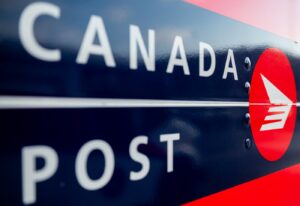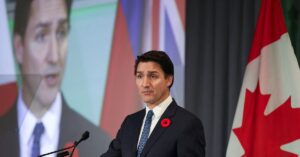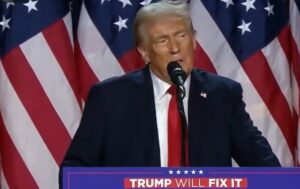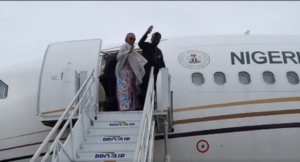
The House of Commons is calling for Prime Minister Justin Trudeau to have an “emergency meeting” with the premiers to talk about alternatives to the federal carbon price, adopting a non-binding Conservative motion to push for this meeting, with support of the NDP and Bloc Quebecois.
Prior to question period Wednesday, NDP environment critic Laurel Collins said her party planned to vote in favour of Conservative Leader Pierre Poilievre’s motion, despite criticism of the Conservative stance on the issue of carbon pricing.
“I think this is an opportunity to show Canadians also how many of the Conservative premiers don’t have a plan, much like the Conservative leader in the House of Commons. They do not have a plan to fight the climate crisis, and that’s something that Canadians should be aware of,” Collins told reporters.
Poilievre introduced a motion calling on Trudeau to have a televised meeting with the premiers on Tuesday. An amended version of the motion was adopted Wednesday that calls for recognition that the carbon price is causing a debate in the country, and to recognize that while British Columbia, Quebec and the Northwest Territories have their own systems, “the federal government mandates carbon tax policy.”
The Supreme Court of Canada affirmed Ottawa’s ability to establish a minimum national pollution price in 2021.
Breaking news from Canada and around the world sent to your email, as it happens.
On April 1, the federal backstop rose from $65 per tonne to $80, with pushback from most premiers in jurisdictions it applies.
Liberal Newfoundland and Labrador Premier Andrew Furey wrote Trudeau last month, requesting a meeting to talk about alternatives.
In response, Trudeau sent his own letter to provinces where the backstop applies saying they’ve always been able to present alternatives that incorporate the backstop.
The premiers of Saskatchewan, New Brunswick and Alberta appeared before the House of Commons’ operations committee days before the increase, to share their opposition and call for the increase to be at least paused.
Saskatchewan Premier Scott Moe said his province looked at alternative plans, but found them all to be too costly.
New Brunswick Premier Blaine Higgs advocated for increased investment in natural gas and pipelines to ship it to the east coast so it could be exported to displace coal power in international markets.
Manitoba Premier Wab Kinew says he wants to present an alternative to the federal carbon price for his province, and met with Trudeau on the subject in Winnipeg last week.
With the current opposition framed around cost-of-living challenges, Collins said the Liberals should be doing more to ease the cost burden felt by Canadians.
“There are lots of ways the Liberals have used consumer carbon pricing as the be-all and end-all of their climate policy, and they’ve really turned it into the political wedge that it is,” Collins said.
“We think there is a whole suite of climate policy that needs to be implemented. Strengthening the industrial carbon price is a big part of that, making the biggest polluters pay their fair share. Removing some of the burden from everyday Canadians and putting it back on to the biggest corporations, the rich CEOs who should be paying for their pollution.”
According to a recent report from the Canadian Climate Institute, the industrial carbon price is responsible for 20 to 48 per cent of Canada’s emission reduction, while the fuel charge people pay for things like gasoline is responsible for eight to 14 per cent of emission cuts.







